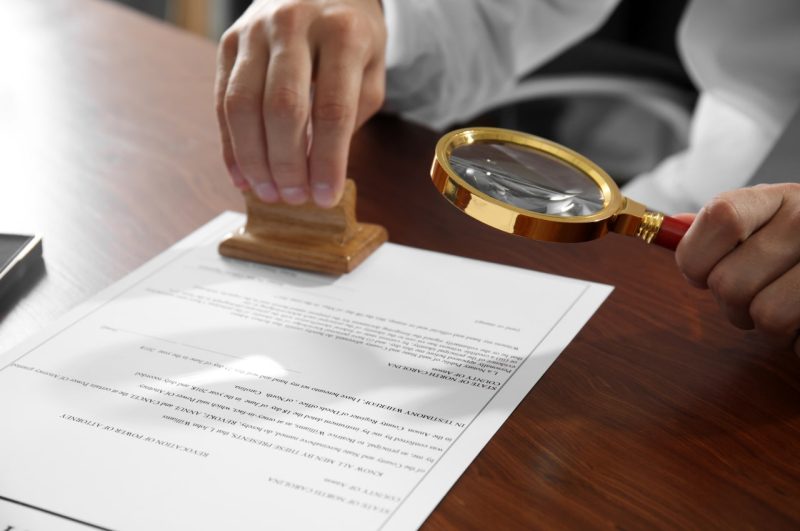Power Of Attorney In Florida & Grounds For Its Revocation
Power Of Attorney In Florida & Grounds For Its Revocation


What Is the Revocation Of Power Of Attorney?
A Power of Attorney is a legal agreement that authorizes another person to act on your behalf in financial and business transactions. This person or entity given power is known as the attorney-in-fact. They are given the authority to sign checks, buy or sell a property, handle investments, and negotiate contracts on your behalf.
This legal instrument seems irrevocable, but it’s not. The Power of Attorney could face revocation if the principal has not been deemed incapacitated or disabled.
The revocation procedure is determined by how the Power of Attorney was established in the first place. If it was established as a legally binding document signed by both parties, then it must also be revoked formally and signed by both parties. In contrast, if the contract was merely oral agreement, it may also be revoked orally.
In any situation, it is critical to tell all impacted third parties of the revocation of the agreement. This way, they’ll be aware that future requests for action should not be granted without first communicating with you personally.
Once your Power of Attorney has been revoked, you should also notify your banks so they won’t enable access without your authorization. If you believe there is abuse of funds while your Power of Attorney is still in effect, you should consult an attorney who focuses on financial law.
Ways To Revocate A Power Of Attorney
The Power of Attorney is an efficient and beneficial legal instrument that may be used for a variety of purposes. However, it’s also crucial to understand how to revoke a Power of Attorney if you no longer want the person you’ve authorized to manage your personal or business transactions. Explore some of the ways you can revoke a Power of Attorney and the procedures you should follow.
Formal Written Document
Formally preparing and signing a revocation paperwork is the most effective and simple approach to revoke a Power of Attorney. When revoking such a document, it must include all pertinent information. This shall indicate the date of execution, names of the persons involved, the jurisdiction under which the Power of Attorney was constituted, and so on.
You should also think about informing all other parties who may be depending on the document before revoking it. After notifying all parties, file this paperwork with your local court or other appropriate government institution. This ensures that the Power of Attorney has been formally revoked and that it is no longer valid.
State Law Or Statutory Revocation
Many states have statutes that specify when and how Powers of Attorney can be terminated. Before attempting to withdraw your Power of Attorney in any way other than through formal written instrument, it is critical to review Florida’s laws on the subject.
Court Action
If you are unable or unwilling to withdraw a Power of Attorney through written documents or state legislation, you may need to take legal action. Steps may need to be followed to successfully revoke the agreement. The steps usually depend on the jurisdiction where the Power of Attorney was created. Before issuing a revocation order, courts demand documentation demonstrating why revoking the Power of Attorney is necessary or suitable in any given case.
Reasons For Revoking A Power Of Attorney
If the principal realizes they no longer want the agent they designated to conduct business on their behalf, they can withdraw the Power of Attorney at any given moment. The principal terminates the agreement for a variety of reasons.
- The principal has emerged from a sickness or accident and no longer requires decision-making support.
- The agent is not carrying out their responsibilities as described in the Power of Attorney.
- The principal has reconsidered who should serve as their agent.
- The principal has lost faith in the agent or suspects them of taking advantage of them.
- The principal wishes to remove one part of the agent’s power while retaining the ability to act in other ways.
Revocation of a Power of Attorney must be done in writing, signed by all parties, and witnessed by two individuals. It is crucial to note that the witnesses are not related to either the principal or the agent. It’s also worth noting that repealing a Power of Attorney does not automatically imply that all assets held by the agent must be returned. The assets must first go through probate court before being dispersed according to state law.
If there are any outstanding obligations linked to the assets held by the agent, they must be paid first before any excess cash can be distributed. This is why, before providing a Power of Attorney, principals must ensure that they have chosen a trustworthy person who will act appropriately on their behalf.
Who Has The Authority To Revoke A Power Of Attorney?
At any point, the Power of Attorney may be withdrawn. The agreement can be canceled for a number of good reasons. Check them out below.
Principal
The principal has the right to cancel their own Power of Attorney. Depending on the legislation of the jurisdiction, the principal can do this verbally or in writing.
To be valid in some places, the revocation must be witnessed by two individuals and be notarized. If there are questions regarding whether or not a Power of Attorney was properly withdrawn, the courts may be called in.
Agent
In some circumstances, the agent has the capacity to withdraw a Power of Attorney if the principal has granted them such authority in writing. This form of revocable power allows an agent more control over their activities since they can handle their own affairs without relying exclusively on the principal’s orders. If there is doubt regarding whether or not an agent will stay competent to carry out their obligations under a Power of Attorney, this kind of move may be advantageous.
Court
The courts may also cancel a Power of Attorney if it was obtained unlawfully. Such an agreement will also be subject to revocation if there is proof that an agent abused their authority or acted against the principal’s best interests. If a court deems any of these things to have occurred, it has the authority to remove an existing Power of Attorney and appoint a different agent or guardian until all concerns are resolved.
Contesting A Power Of Attorney
In some circumstances, the principal’s loved ones may be worried that the agent is not working in the best interests of the principal. The agent may have racked up a significant debt in their name or moved assets sans permission while abusing their Power of Attorney obligations.
In other instances, individuals may wish to substitute an agent who is no longer able to perform their obligations owing to disease or infirmity. This covers situations in which the principal is unable to make choices regarding their affairs or when the agent steps down from their role.
It is essential to adhere to the correct procedure when dismissing an agent and replacing them with a competent one who can carry out the principal’s duties.
Does A Power Of Attorney In Florida Expire?
A Power of Attorney expires five years from its establishment date unless clearly stated differently, as per Florida Statutes Section 709.2105. This expiry date exists to safeguard the principal who entrusts power to another individual or entity.
Things may change over time, and so are agreements. What made sense a few years ago may not make sense now. Setting an expiration date for Power of Attorney allows you to reevaluate your decision before renewing it without ever revisiting the provisions.
If the Power of Attorney expires, then there is definitely a means to renew it. Renewing a Power of Attorney is simple and can be done at any time before the existing agreement expires.
To begin, you must create a new document with updated information and get it signed by both parties engaged in the process. There are no additional legal costs or third-party organizations involved in the renewal procedure. You just need to generate a new document and have both parties sign it. Your new Power of Attorney will take effect immediately once it has been signed by all relevant parties.
Bottomline
In exceptional cases, you may be compelled to revoke a Power of Attorney. Changes in health, a loss of faith in the agent, or a change in view about who should make decisions on your behalf are all grounds for revocation. Regardless of the reason for revocation, it must always be done in writing, signed by the parties concerned, and attested by two persons not related to the agent or third parties.
The process of revoking a Power of Attorney is simple. It should be done carefully and thoughtfully because it will influence many parts of your life and money in the future. Before making these decisions, it is critical to understand all of the factors involved in forming and revoking a Power of Attorney. Knowing who has the right to revoke a Power of Attorney is also equally important.
Dealing with an experienced lawyer in Coral Gables, FL can help guarantee everything is addressed correctly before they become major problems. With thorough planning and foresight, you may be confident that your future estate intentions will be carried out with no issues.
&
Have questions about how to get started on your estate plan or estate needs?
Have questions about how to get started
on your estate plan or estate needs?
Contact the experienced estate planning professionals at The Estate Plan
by calling us at (305) 677-8489.
Contact the experienced estate planning professionals at The Estate Plan by calling us at
(305) 677-8489.

